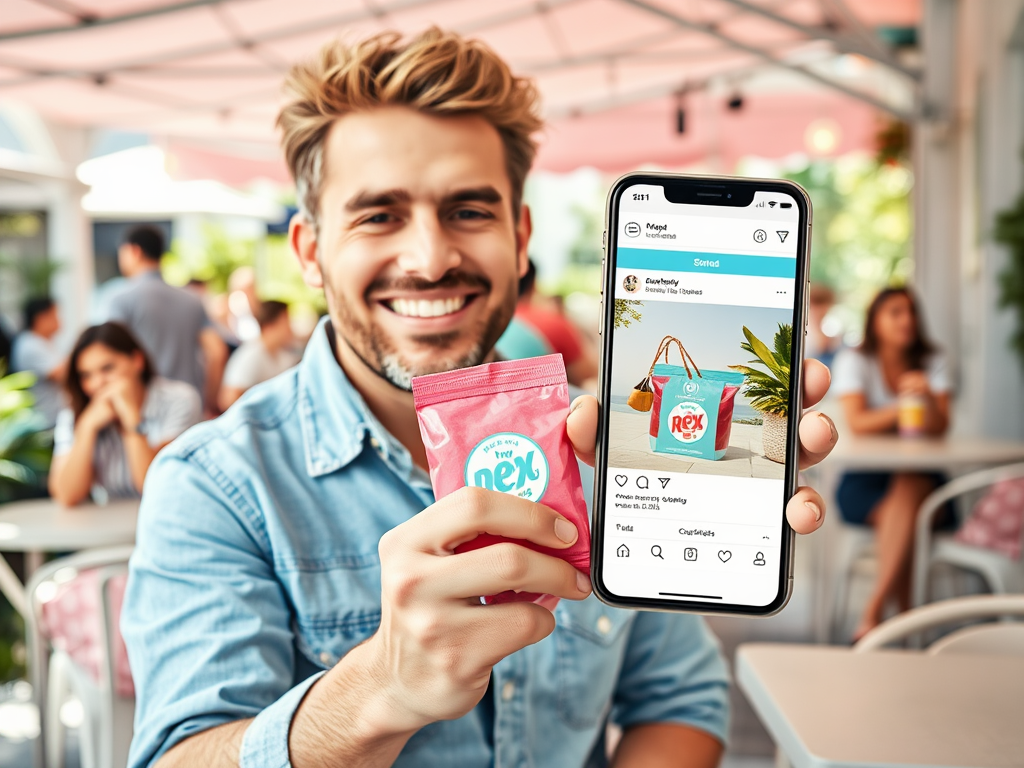
In the ever-evolving digital landscape, social media management has become a cornerstone for brands striving to connect with their audience. The right strategies not only enhance visibility but also create deeper engagement with consumers. Many brands have transformed their social media presence into a vibrant storytelling platform, showcasing their values and mission while driving customer loyalty. Those that have embraced authenticity, creativity, and innovation have seen tremendous success. Let’s explore some remarkable success stories that illustrate effective social media management practices. In this article, we’ll delve into the brands that are truly getting it right, providing valuable insights for those looking to elevate their own social media strategies.
The Power of Storytelling in Social Media

Storytelling is a vital element in crafting a successful social media strategy. By engaging in meaningful narratives, brands humanize themselves, making their content more relatable and shareable. For example, a clothing brand that shares customers’ stories about how their products have made a difference in their lives can create a powerful connection. Beyond mere transactions, storytelling nurtures community and loyalty, allowing customers to feel invested in the brand’s journey. Moreover, compelling stories can increase user engagement levels significantly. Brands that effectively employ storytelling can enjoy more shares, comments, and likes, creating a robust virtual presence.
Innovative Campaigns That Captured Attention

Some campaigns have brilliantly captured the audience’s attention and set the gold standard for social media marketing. For instance, the “Share a Coke” campaign by Coca-Cola utilized the customer’s name on bottles, turning an everyday product into a personal and emotional experience. This campaign not only increased sales but also encouraged consumers to share images of their personalized bottles on social media. Here’s a look at other noteworthy campaigns that revolutionized social media engagement:
- Nike’s “Dream Crazy” featuring Colin Kaepernick that sparked a global conversation about social justice.
- Always’ #LikeAGirl campaign, which promoted female empowerment and tackled stereotypes.
- Buzzfeed’s Tasty videos, which transformed cooking into a visually engaging experience, captivating food lovers everywhere.
These innovative campaigns reflect the importance of creativity in social media management. A successful campaign typically has several key elements that resonate with the audience. Below is a table summarizing those essential components:
| Campaign Element | Description |
|---|---|
| Visuals | Eye-catching graphics or videos that captivate the audience’s attention. |
| Messaging | Clear and relatable messaging that speaks to the target demographic. |
| Audience Targeting | Thoroughly understanding the audience to tailor content effectively. |
Engaging with Followers: Building Community
Effective social media management goes beyond posting content; it’s about fostering a two-way conversation. Brands today recognize that engagement is a vital part of building a loyal community. For instance, a skincare brand might invite followers to share their skincare routines using their products, thereby creating a sense of belonging. This level of interaction not only builds customer loyalty but also enhances the brand image. With communities thriving on shared experiences, effective engagement can transform customers into advocates. Ensuring active communication creates a vibrant atmosphere where feedback can directly influence brand offerings.
To foster community engagement, brands can leverage various tools and tactics. Here are some effective methods that can be implemented:
- Polls to gather opinions and preferences.
- Q&A sessions to connect with the audience in real time.
- Contests that encourage users to participate and share their experiences.
Leveraging User-Generated Content
Brands are increasingly recognizing the power of user-generated content (UGC) as a valuable asset. UGC not only enhances brand authenticity but also encourages stronger customer relationships. Fashion brands, for instance, have utilized images and videos from their customers wearing their products to reinforce brand loyalty and trust. Such content often feels more genuine compared to traditional advertising methods. The success of a brand utilizing UGC can be illustrated by Starbucks’ #RedCupContest, where customers creatively styled their holiday cups, resulting in massive engagement and brand visibility.
Data-Driven Decisions: Measuring Social Media Success
Ultimately, analytics play a pivotal role in refining social media strategies. Brands must analyze engagement statistics regularly to adapt their approaches effectively. This includes monitoring metrics such as reach, engagement rate, and conversion rates. Companies that leverage data can pinpoint successful content while identifying areas for improvement. For example, a beauty brand might discover that video content generates higher engagement, prompting them to focus more on this format. Data-driven decisions can lead to more personalized marketing, enhancing overall customer experience and brand loyalty.
Conclusion
After exploring these success stories, it’s evident that dynamic social media management is critical for brands aiming to stand out in a crowded marketplace. Focusing on storytelling, innovation, community, user-generated content, and data can strengthen a brand’s presence significantly. Brands that adopt these strategies not only enhance engagement but also foster genuine relationships with their audience. By continuously learning from successful initiatives, companies can tailor their approaches to connect with their customers meaningfully, paving the way for future success.
Frequently Asked Questions
- What is social media management? Social media management involves creating, scheduling, analyzing, and engaging with content posted on social media platforms.
- Why is storytelling important in social media? Storytelling builds emotional connections with the audience, making the brand more relatable and memorable.
- How can a brand encourage user-generated content? Brands can encourage user-generated content by running contests, featuring customer stories, or creating hashtags that invite customers to share their experiences.
- What metrics should brands focus on to measure social media success? Key metrics include engagement rate, reach, conversions, and follower growth.
- How often should brands post on social media? Posting frequency can vary, but a consistent schedule that keeps the audience engaged is essential. Brands should tailor their strategy based on audience preferences and platform algorithms.